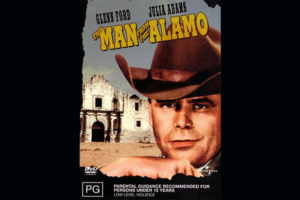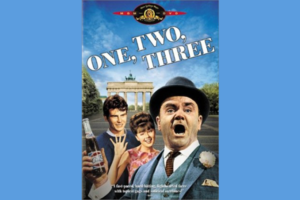
If I ever run into any of you bums on a street corner, just let’s pretend we’ve never met before.


I love this movie. It’s been my favorite movie for most of my adult life. Occasionally it is eclipsed by A Bridge Too Far (1977) when I’m focused on bureaucracies. But I jump back to Stalag 17 (1953) when I’m feeling really cynical. William Holden, who I think is a much better actor than most people believe is amazing as Sefton, a POW with no redeeming societal values. Holden’s wife told him he only received the best actor Oscar for this role as an apology for not winning it for Sunset Blvd. (1950).
However, it is much harder to play a character that no one likes. Holden lobbied director Billy Wilder to make the character a little softer. He was only given one concession and I believe this is what makes the whole movie work[1]. In the end, I will look at a couple of things that might mitigate Sefton attitude.
ACTORS – Stalag 17 (1953)
We have a few actors that we have covered before so I will jump right in and begin with them.
Funnyman Harvey Lembeck played the role of Sgt. Harry Shapiro. Lembeck was covered in The Command (1954). He did a great job keeping things light without turning the film into a farce. Lembeck is one of the many high spots in this film. One of the notes on iMDB.com said that Jewish prisoners of war were moved to concentration camps and no one named Shapiro would be there. However, this was not done to American prisoners of war, since by the time they started ending up in German POW camps, many Germans could see that the end was coming.
Neville Brand played Duke, a gruff no-nonsense, reactionary. Brand was first discussed in Birdman of Alcatraz (1962).
Sig Ruman played the seemingly friendly German Sgt. Johann Sebastian Schulz. Ruman was covered in House of Frankenstein (1944).
William Holden played the lead role of Sgt. J.J. Sefton. A prisoner with no regard for his fellow POWs. Holden was born in 1918. Living in Pasadena, Holden was spotted by a talent scout from Paramount Pictures in 1937 while playing the part of an 80-year-old man. Holden had two uncredited roles before his first starring role in Golden Boy (1939), in which he played a violinist-turned-boxer. After Columbia Pictures picked up half of his contract, he made minor pictures for Paramount and Columbia before serving as a 2nd lieutenant in the United States Army Air Corps during World War II, where he acted in training films for the First Motion Picture Unit. Beginning in 1950, his career took off when Billy Wilder tapped him to star as the hack screenwriter Joe Gillis, who moves in with a faded silent-film star Norma Desmond (Gloria Swanson) in Sunset Blvd. (1950).
Following this breakthrough film, his career quickly grew in stature as he played a series of roles that combined good looks with cynical detachment. These roles include a prisoner-of-war entrepreneur in Stalag 17 (1953), for which he won the Academy Award for Best Actor. To me, this is one of his greatest roles and one of the greatest movies of all time.
A pressured young engineer/family man in Executive Suite (1954), a conflicted jet pilot in the Korean War film The Bridges at Toko-Ri (1954), a carefree playboy in Sabrina (1954), his most widely recognized role as an ill-fated prisoner in The Bridge on the River Kwai (1957) with Alec Guinness, a World War II tugboat captain in The Key (1958), and an American Civil War military surgeon in John Ford‘s The Horse Soldiers (1959) opposite John Wayne.
His career peaked in 1957 with the enormous success of The Bridge on the River Kwai. By the mid-1960s, the quality of his roles and films had noticeably diminished. In 1969, Holden made a comeback when he starred in director Sam Peckinpah’s graphically violent Western, The Wild Bunch (1969), winning much acclaim. Five years later, he starred with Paul Newman and Steve McQueen in the disaster film The Towering Inferno. He was also praised for his role in the classic Network (1976).
In 1980, Holden appeared in The Earthling with Ricky Schroder, dying of cancer in the Australian outback, he meets a young orphan and teaches him how to survive. During his last years, Holden also appeared in When Time Ran Out, a critical and commercial failure; his final film, Blake Edwards’s S.O.B. (1981), was more successful.
Holden was alone and intoxicated in his apartment in Santa Monica, California, on November 12, 1981, when he slipped on a rug, severely cutting his forehead on a table, and bled to death. Evidence suggests he was conscious following the fall. In his drunken state, he probably didn’t realize how badly injured he was. His body was found four days later.
Don Taylor played down flying office Lt. James Dunbar. Taylor was covered in Battleground (1949).
Otto Preminger played the role of the sadist German camp commandant Oberst von Scherbach. Preminger was born in Austria-Hungary in 1905. Preminger directed his first film in 1931. He came to the US in 1936 and started directing on Broadway. By 1944, he was a top-rated director having directed the Film-Noir classic Laura (1944). Other great movies include Forever Amber (1947), Where the Sidewalk Ends (1950), Carmen Jones (1954), River of No Return (1954), The Court-Martial of Billy Mitchell (1955), The Man with the Golden Arm (1955), Saint Joan (1957), Anatomy of a Murder (1959), Porgy and Bess (1959), Exodus (1960), Advise & Consent (1962), Bunny Lake Is Missing (1965), and In Harm’s Way (1965). His last directorial role was The Human Factor (1979). Preminger died in 1986.
Peter Graves played the role of Sgt. Frank Price, the head of security. Graves was born in Minnesota in 1926. His brother is James Arness of “Gunsmoke” fame. Graves spent two years in the United States Air Force before attending the University of Minnesota where he studied drama. His first film was Rogue River (1951). Graves was in many films with a high number of them being Westerns. Other films include The Long Gray Line (1955), The Night of the Hunter (1955), and the wonderfully funny Airplane! (1980). However, he is best known as Jim Phelps in “Mission: Impossible” 1966-1973. Graves died in 2010.
STORY – Stalag 17 (1953)
This movie was shot in sequence and many of the actors were surprised by the ending. The story takes place during the Battle of the Bulge in December 1944. The story is told in flashback by Sgt. Clarence Harvey ‘Cookie’ Cook (Gil Stratton). He explains there are 630 American airmen that are all sergeants. It is almost Christmas and two American POWs, Manfredi and Johnson, are preparing to escape. All the men are lying awake waiting for the signal.
On signal, they jump up and lift the stove revealing a trap door. Sgt. ‘Hoffy’ Hoffman (Richard Erdman) gives them civilian clothes to change into. This would classify them as spies and subject them to being executed. Sgt. Frank Price (Peter Graves) gives them their identification papers and goes over the plan again. Sgt. Sefton (William Holden) asks if they calculated the odds. The two men make it across the compound and enter a tunnel in the latrine. Back in the barracks, Sefton bets two packs of cigarettes that they don’t make it out of the forest. Price, Duke (Neville Brand), Sgt. Harry Shapiro (Harvey Lembeck), Hoffy, and Sgt. Stanislaus ‘Animal’ Kuzawa (Robert Strauss) all bet against him in support of the escaping men. As the betting grows larger Sefton has Cookie pull more cigarettes out of a very well-stocked footlocker.
Manfredi and Johnson dig out of the end of the tunnel and are outside of the barbed wire. As soon as they stand up they are killed by a machine gun crew waiting outside of the camp for their arrival. As the men in the barracks hear the machine guns Cookie looks at Sefton. Sefton throws his cigarette away deeply wishing he had lost the bet. Duke calls out Sefton for collecting his prize too early and Sefton responds asking if anyone wants to double their bet.
The next morning the Nazi guards woke the camp. For Barracks 4 where this story is taking place, the head guard is German Sgt. Johann Sebastian Schulz (Sig Ruman). He laughs and makes marry but he has contempt for his enemies. The POWs assemble in the muddy compound while a series of boards are laid out so the commandant Oberst von Scherbach (Otto Preminger) will not have to get his boots muddy. To the side under a tarp are the machine-gunned bodies of Manfredi and Johnson. Von Scherbach tells the men that no one has ever escaped from Stalag 17. They uncover the bodies and show the prisoners the two dead men. Hoffy demands that the men be properly buried. Von Scherbach tells the camp that anyone outside after lights out will be shot and the stove covering the trap door will be removed. Animal throws a piccolo in the water near Von Scherbach and gets his boots muddy. When Von Scherbach demands to know who did it all the men step forward. After Von Scherbach tells the men that they will be deloused with cold water as punishment they are dismissed.
The prisoners go to the latrine to clean-up and Duke is giving Price, the security chief a razzing because the Germans know so much. They begin arguing and Duke tells Sefton, who has the best of everything, that there is a stoolie in the barracks, something it seems Sefton has already figured. Their fight is interrupted by the arrival of female Russian prisoners. Animal falls over the deadline and is almost shot.
In the barracks, the men are having watered-down potato soup. After most of the men eat, a prisoner starts washing his socks in the soup. Sefton starts frying a fresh egg. As the hungry men watch, Duke comes around and starts to question Sefton about what he gave for the egg. It turns out to be the cigarettes he won betting against Manfredi and Johnson. Sefton says everybody trades, he is just sharper at it and that he learned to be this way when he was robbed the first week in. Duke and he get into a shoving match that Hoffy breaks up. Sefton gives the egg to Joey, a man that has lost his mind due to trauma. Price starts questioning Sefton about why he bet against Manfredi and Johnson. He says he liked the odds and he wasn’t going to try and escape and was fine being a live prisoner for the rest of the war. Sefton and Duke scuffle again.
The camp newsmen come in and give a brief before the handover the radio that a man with one leg has hidden up his pant leg. Barracks 4 only gets the radio for 2 days because the other barracks think they are jinxed and will lose it to the Germans. They have a metal net that they use for volleyball and use as an antenna. The news from the radio tells of the German breakthrough at the Battle of the Bulge and the before Christmas reports seemed horrible for the Americans. About this time Shultz and some guards come to pick up the stove. Price, Hoffy, and Duke begin to question him about the stoolie but Shultz just says how much he likes Americans and that he traveled as a wrestler in America. Sefton says why don’t you just tell them it’s me before Shultz ushers the last man out. When Shultz is alone he sees that the light cord is tied in a loop. He opens the queen on the chessboard and there is a note inside. Shultz replaces it with one from his pocket and unties the loop before leaving.
The Barracks 4 men are outside to dig and fill the escape tunnel. They see a wagon carrying the coffins of Manfredi and Johnson. Cookie begins to wonder who the stoolie is. All he knows is that it is not him. He wonders if it is Sefton and begins the give the story of Sefton’s hustles that are all based on cigarette betting. Sefton has a horse racing track that uses mice, a schnapps distillery that uses potato peels, and a telescope where the men can have a timed view of the Russian women being deloused. Hoffy, Price, and Duke are against these diversions as they feel it will make the Nazis punish them all if they are discovered.
Two days before Christmas everything has calmed down but Duke is still riding Sefton. They bring in a new prisoner, Lieutenant James Dunbar (Don Taylor). The normal procedure is to separate prisoners into enlisted, sergeants, and officers. The enlisted don’t cause trouble because they have no leadership. The officers plan and plan but never execute, while the sergeants just take action. That is why this movie and The Great Escape (1963) are about Sergeants.
As soon as Dunbar gets in the barracks, Sefton starts giving him grief. It seems they knew each other in Officers Candidate School and from living in Boston. Sefton resents Dunbar’s family wealth. Sefton loads up with a bottle of booze and a carton of cigarettes before heading out. The reason Dunbar could not get to the officer’s camp was because someone blew up a German ammunition train in Frankfurt. The Germans suspect Dunbar but don’t know how he could do it. The sergeant traveling with Dunbar tells that Dunbar blew up the train using a small time bomb before he is warned that there might be a stoolie in the barracks.
The light cord is shown to be in a loop and Schultz unexpectedly shows up. He tells the POWs that the Geneva man is coming and they will be issued new blankets. Then he says that he wants the radio. I once talked to an American POW and he said the closer the American Army got, the less the Germans would punish you for having a radio. In the end, they would simply take it away with no consequence. Schultz pokes around for a bit then pulls the radio out of its hiding place in a bucket. Schultz is laughing until he sees the tied light cord. Schultz sends them out to get the blanket then he switches the queens on the chessboard.
Back in the barracks, the gang descends on Cookie wanting to know the whereabouts of Sefton. With Hoffy’s okay they bust into Sefton’s locker. He has stockings, cuckoo clocks, cameras, booze, and cigarettes. About this time Duke busts in tells the men that Sefton is in the Russian women’s compound. The figure that’s what he got for the radio. Hoffy destroys the telescope. When Sefton gets back the entire barracks are waiting for him. They accuse him of being the stoolie. Just about the time they are going to beat Sefton, Von Scherbach comes personally to pick up Dunbar because of the ammunition train. As soon as the German’s leave the whole barracks beats Sefton to within an inch of his life.
The day before Christmas, the Geneva Man (Red Cross) showed up. In the packages, they brought were 2,000 ping-pong balls. Sefton is lying beaten in his bunk and he tries to pay off Schultz to find out who the stoolie is. The men come in and see Sefton handing a stack of cigarettes to Schultz. It looks bad for Sefton. The Geneva man comes in and the POWs have been ordered not to complain. Hoffy speaks up and asks about Dunbar.
In Von Scherbach’s office, they are keeping Dunbar awake to break him. If Dunbar blew up the train after he was captured would make him a saboteur under the Geneva Convention and the Germans would have the right to shoot him. The Geneva man says that von Scherbach will need details before he can convict Dunbar. Von Scherbach orders Schultz to find out how the bomb was made.
The men are in the barracks preparing for Christmas Eve by decorating their small tree and turning the ping-pong balls into a smoke bomb. Duke comes in with a phonograph that he has traded for Sefton’s still. When the men are busy singing, Price sees the cord of the light in a loop. He takes a queen out of his bunk and switches it with the one on the board. He secretly reads the note from Schultz. Damn, hiding in security, no one would look there. When the dancers come around he joins right in like he is their best friend. Sefton laying in his bed sees the straight light cord and begins to figure it out.
Price goes to the sergeant that came with Dunbar and gets him to tell how the time bomb was made. Price is told that you place a lite cigarette in a book of matches and it takes time for the cigarette to burn down and light the matches. I use to use this trick for setting off a string of black cats under somebody’s carport. It gave me time to run home and establish an alibi before the explosion.
That night the men are in the barracks singing and Duke takes Sefton’s booze. Sefton watches the cord. The air raid sirens go off and Schultz comes in and ushers the men out of the barracks. Price lays back and tells Schultz in German how the bomb was made. When they go out Sefton steps out of the shadows having seen the entire plot.
On Christmas Day the men are still enjoying the holidays. Shapiro dresses as a woman and Animal in a drunken haze thinking Shapiro is Betty Grable. Cookie begins to suspect Sefton but Sefton runs down the whole scheme and talks about how to get rid of the German spy without getting reprisals.
The SS men come to pick up Dunbar. Hoffy says he has a plan to snatch Dunbar from the Nazis. Sefton tricks Hoffy into making Price watch him so he can’t give the plan away to Schultz. As Dunbar is brought out Hoffy whistles the Air Corp song, off we go into the wild blue yonder to let Dunbar know something is up. Blondie sets off the smudge pot making smoke. The men rush forward and liberate Dunbar. But where was he hidden? The Germans made a picture check of all the men. Price signals that he doesn’t know to Schultz. Von Scherbach says he will pull the entire camp down in the morning if Dunbar is not found. The camera pulls back to show Dunbar hiding in the water tower.
That night Hoffy collects dog tags and says the one that gets drawn will have to take Dunbar out and it will be extra hard as the Germans have put on extra guards in expectation. They draw a tag and Price steps up and says he will take Dunbar out because he has done a bad job at security. Price gets the wire cutters from Duke and Hoffy tells him where Dunbar is hiding. Sefton steps up and bets two packs of cigarettes that Dunbar never makes it out of the camp. He sticks a knife in the table to cut the throat of the stoolie. The rest of the men are enraged but Sefton starts telling the tale of Price. He begins by telling the men that Hoffy told the Germans where Dunbar is hiding. Sefton slaps Price three-times and questions him about Pearl Harbor. He makes a mistake on the time. The men start to follow the story. Sefton pulls the queen out of Price’s pocket and shows the light cord loop. Price breaks and tries to escape screaming in German but the men tackle and muffle him.
Duke says to Sefton “Brother were we all wet about you.” Sefton strikes a match on his face and says forget about it. Sefton gets the civilian clothes and wire cutters. He says he is taking Dunbar out but only for the reward. The plan is to throw Price out into the compound. Sefton gives the store to Cookie and when Animal asks about how to get with the Russian girls, Sefton says get yourself 100 cigarettes for the Kraut guards and get a new face.
As Sefton drops into the trap door he says “If I ever run into any of you bums on a street corner, just let’s pretend we’ve never met before.” He drops out of sight. He then pops back up and gives a salute. This was the single softening of the character that Wilder allowed and it made the movie work and humanized Sefton. Sefton makes it to the water tower where Dunbar is hiding and taps out off we go into the wild blue yonder. Dunbar’s legs are frozen and Sefton gets him ready. Right on schedule, the men of the barracks throw Price out with a gag and cans tied to him. All of the German lights and machine guns hit him immediately.
As Price is shot down Sefton and Dunbar cut their way through the wire and escape the camp. Von Scherbach and Schultz come out to look at the dead man and they are all smiles until they see it is Price. Back in the barracks, Animal says Sefton only did it so he could steal the wire cutters. Cookie smiles and begins whistling “When Johnny Comes Marching Home.”
The End
So just a short note on Sefton. Was he really that bad? He was disgusted when Manfredi and Johnson were killed. He was robbed his first week in camp. He took care of Cookie who may have been weak. He also leveled the odds for Dunbar. Maybe not all bad.
World-Famous Short Summary – A rich man and a poor man from Boston take a European trip
Beware the moors
[1] http://www.imdb.com/title/tt0046359/trivia










Leave a Reply
Your email is safe with us.